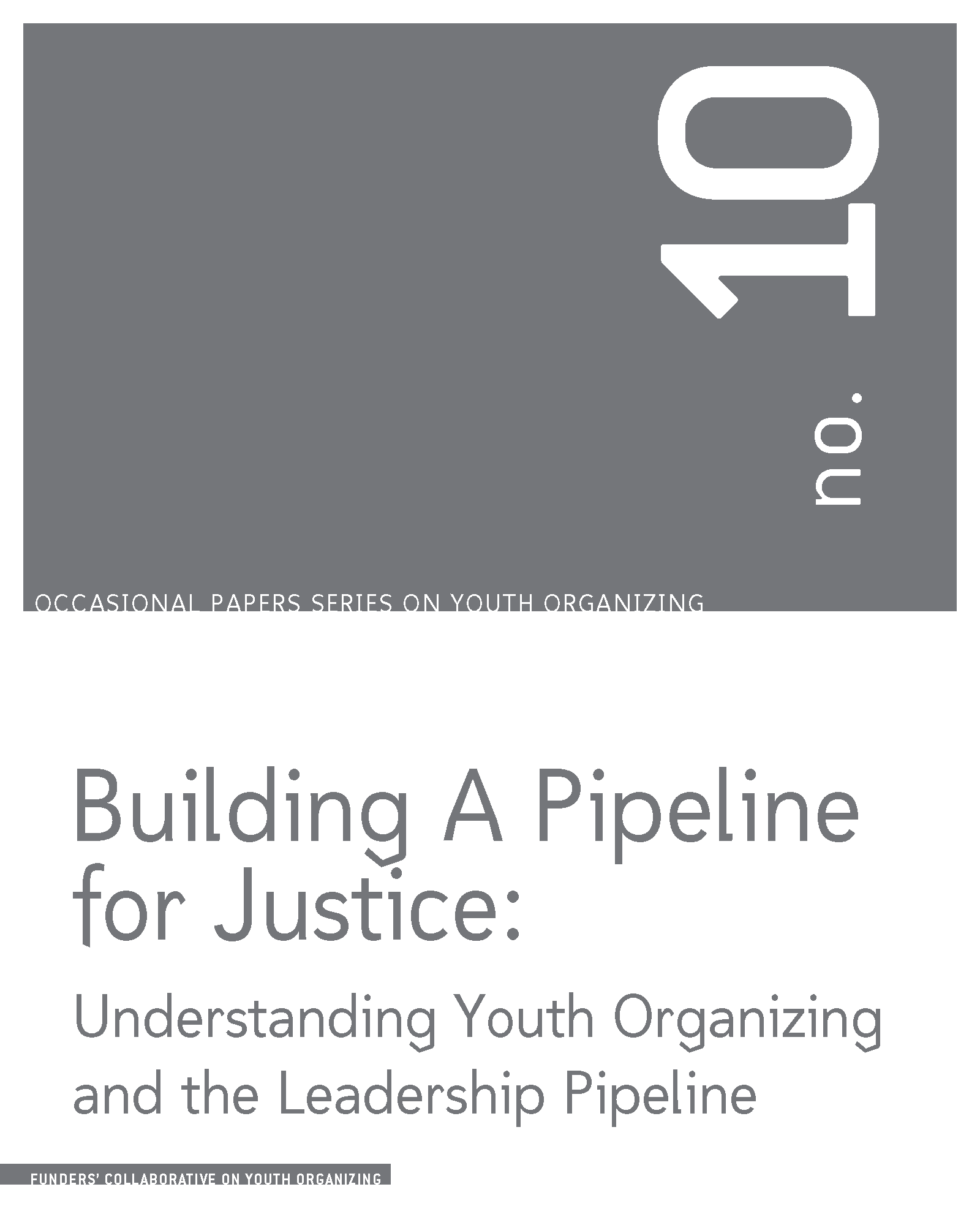RESOURCE
OPS 10 - Building a Pipeline for Justice: Understanding Youth Organizing and the Leadership Pipeline
FCYO's Occasional Papers Series (OPS) is a series of papers aiming to capture and document growing knowledge around youth organizing, and address key issues and questions commonly posed by funders and practitioners about the work and field overall. There are 11 OPS installments, which explain the theories behind youth organizing as a strategy for transformative youth development and social change, track the history of youth organizing in different regions across the United States, and uplift the individual, community and societal impacts of youth organizing.
In Occasional Paper Series #10, the first in the Leadership Pipeline series, Shawn Ginwright explores how youth organizing is an effective entry point for a more sustainable, long-term progressive, social justice movement. He examines how high school-aged youth organizing in poor communities of color builds transformative power and cultivates immense leadership. In looking closely at the power of youth organizing to drive a progressive, social justice movement, Ginwright also looks at what’s missing. How is it that powerful youth organizers are disconnected from opportunities in the progressive, social justice movement as they age? Why, as one Executive Director asked, are our youth organizers on the cover of the newspaper for the victories they’ve achieved for our communities, but on the corner the next day without a job? What is the ecosystem understanding we need to ensure youth organizers see a clear pathway to post-secondary education, employment and other experiences that guarantees a strengthened progressive, social justice movement? Finally, Ginwright offers a recommendation for those of us who not only care about youth organizing and the future of youth organizers, but want to roll up our sleeves and begin building the systematic pipelines and pathways necessary to ensure a more socially just society.
The paper draws from a deep well of information gathered from youth organizing groups across the country. FCYO conducted a national web-based survey of 160 youth organizing groups and also participated in conversations with more than 80 such groups. These conversations resounded with the need to think about how we systematically reach those most affected by disparities and injustice at a young age, build their strength collectively and individually to address those injustices and ensure that their voices continue to grow as they age, to enrich and inform a broader democracy.



